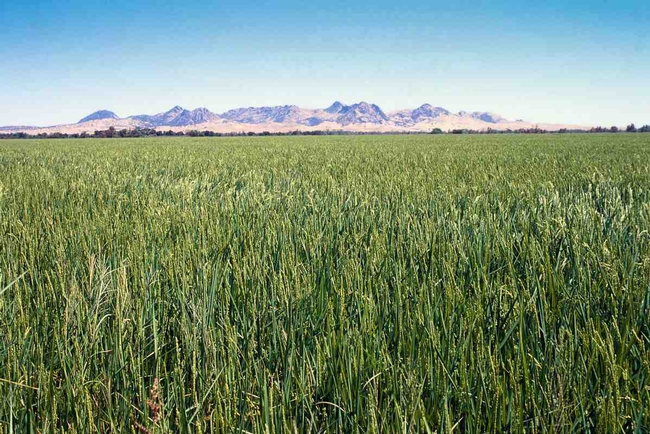
In contrast, genetically modified crops such as soy, corn and cotton have received widespread adoption by U.S. farmers.
Debate continues over whether genetically modified rice would be a plus or minus for the environment. While herbicide-tolerant varieties could reduce herbicide applications overall — they could also contribute to herbicide resistance in weedy rice.
For the time being, however, market considerations have trumped the debate over environmental costs and benefits.
A recent article in California Agriculture featured a literature review and extensive interviews with California rice growers explaining why.
“Although several studies suggest that transgenic rice would benefit California rice growers — particularly the herbicide-tolerant varieties — transgenic rice also presents economic risks,” writes Dustin Mulvaney, lead author, and now assistant professor at San Jose State University.
For one, California growers rely on exports for half of their sales. At present, Japan alone constitutes 41 percent of the state’s export market. Japan purchased more than $421 million in 2009 — over 40 percent of the industry's exports.

“While it is difficult to determine whether protectionism, culture or biosafety are the main forces driving such policies, all play a role in discouraging the deployment of transgenic rice,” Mulvaney said
California growers manage risks to marketability through the California Rice Certification Act. The act targets “characteristics of commercial impact,” including those of transgenic rice. The act states that growers rely upon identity preservation in the “production, handling and marketing practices that maintain the integrity and purity of agricultural commodities.”
Identity preservation is used to manage “genetic pollution” risks from transgenic crops (California Agriculture July-September 2006), particularly those not approved for human consumption or used to make pharmaceuticals (California Agriculture April-June 2007). In these latter cases, identity preservation must be 100% effective.
Mulvaney notes, “The commercial approval of transgenic rice in California is unlikely until there is widespread market acceptance and growers are assured of no sales interruptions. “